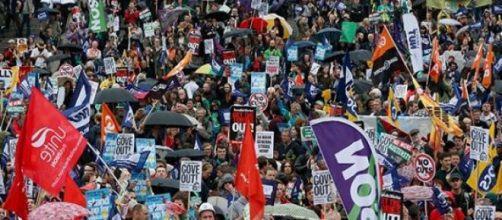With the new year, major challenges are to be faced by a liberty we have considered, for many decades now, to be a fundamental one.
Laws to restrict the right of strike to public sector workers may be on their way and, with them, the questioning of the Democratic system in its very own essence.
In winning the general elections of next May, the Conservative Party plans to change the current simple majority method for a strike to be called, to a demand of backing by 4 out of 10 of eligible union members, when the strike is to affect "core" sectors, such as health, transport, education and fire services.
Also under the concern of the Conservative Party are other related issues such as permitting the using of agency workers to cover strikers and the imposition of a three-month time limit after a ballot for action to take place and curbs on picketing.
Patrick McLoughlin, Transport Secretary, does not intend to end strikes, only claims reasonable the need for "greater participation" for it is not "fair" for a strike to potentially affect the lives of millions, when, so very often, are supported by a small minority. With regards to the target of 40% simply believes it to be a realist one.
In fact, "before a strike is allowed to go ahead it must have much more support from the union members and cannot be called by politicised union leaders", told BBC Radio 4's Today programme.
Naturally it did not take long for the trade unions to react and Frances O'Grady, TUC Secretary General mentioned what considers to be a plan with "profound implications not just for trade unions and working people, but for civil liberties".
It seems the conservative party faces opposition not only from the unions but from within the coalition as well, as Liberal Democrats see this as a "brutal bid to strangle workers' rights", according to Vince Cable, the Liberal Democrats Business Secretary. In fact, "setting a mandatory 40 per cent level of support for strike action seems odd when MPs do not need to reach such a high hurdle to get elected", he added.
If these changes do take place we are to expect 2015 as a turning point for civil rights as we know them!

